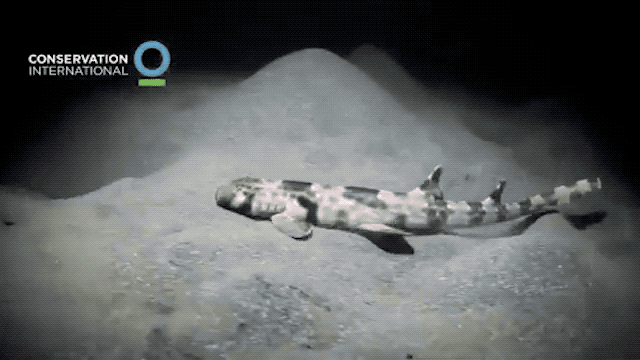Scientists have discovered four new species of shark with a surprising way of moving through the water. The team observed the tropical marine creatures using their fins to walk across the sea floor, a motion rarely seen in sharks and one that affords them a strong advantage over the smaller creatures they prey on.
The four new shark species were discovered in the tropical waters of the Indo-Australian Archipelago, which lies between mainland Indonesia and Australia. The scientists were working on a 12-year global conservation study when they spotted the peculiar sea creatures, which they say are an apex predator in the shallow reef waters they call home.
“At less than a meter (3.2 ft) long on average, walking sharks present no threat to people but their ability to withstand low oxygen environments and walk on their fins gives them a remarkable edge over their prey of small crustaceans and molluscs,” says Dr Christine Dudgeon from Australia’s University of Queensland.
While some shark species have been known to walk before, this set of four almost doubles the tally, bringing the known total to nine. What was interesting to the researchers is that none of the sharks closely related to these newly identified reef-dwellers share their special way of walking.

Following a DNA analysis, the team believes that long ago, the walking sharks made a breakaway from their brothers and sisters to take on their own identity as a new species.
“Data suggests the new species evolved after the sharks moved away from their original population, became genetically isolated in new areas and developed into new species,” says Dudgeon. “They may have moved by swimming or walking on their fins, but it’s also possible they ‘hitched’ a ride on reefs moving westward across the top of New Guinea, about two million years ago. We believe there are more walking shark species still waiting to be discovered.”
The research was published in the journal Marine and Freshwater Research, while you can see the walking sharks in action in the video below.
Source: University of Queensland





